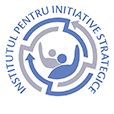Interethnic Dialogue in Soroca – Problems and Solutions in Strengthening Social Cohesion

The Institute for European Politics based in Berlin (IEP), in partnership with the Institute for European Policies and Reforms (IPRE), the Institute for Strategic Initiatives (IPIS) and the Youth Resources Center – DACIA organized in Soroca on Thursday, November 1st a local dialogue on interethnic relations and social cohesion in the Republic of Moldova.
Iulian Groza, Executive Director at IPRE, welcomed everyone in his opening remarks and Dominic Maugeais, IEP Project Manager, spoke about the aims and objectives of the project. At the same time, Ion Babici, President of DACIA Youth Resources Center, talked about the role of young people in the development of local communities. Vera Petuhov, Deputy General Director, Interethnic Relations Agency, presented the main conclusions of the Strategy for strengthening interethnic relations in the Republic of Moldova 2017-2027. Sergiu Conovalu, Program Coordinator, High Commissioner for National Minorities, OSCE, in his opening remarks spoke about the efforts of international organization in building a strong society.
In the second part of the event the participants were divided into four groups. A facilitator was assigned to each of the four tables, who discussed for 15 minutes one of the following topics: education and mass media (moderated by Stela Babici, Dacia Center, Soroca); economic development (moderated by Mihail Şalvir, Center for Regional Initiatives, Comrat); social rights (moderated by Vadim Pistrinciuc, IPIS); Association Agreement with the European Union (moderated by Vitalie Ponomariov, professor, Cahul). The dialogue was organized in a rotation format, allowing participants to discuss all four topics.
The purpose of this exercise was to identify the problems and measures that need to be implemented to strengthen interethnic relations in the Soroca region. Below are some of the most important conclusions of the debates:
- Education is a difficult topic in the region, so cooperation between the media and the education sector needs to be improved. The development of a media education course in schools would be a solution to the problem. At the same time, the school plays a major role in creating perceptions and represents a good place for an intervention in developing a good model of interethnic relations.
- Ethnic diversity must be used as a tool for economic growth. The participants also supported the idea of developing the Soroca tourist brand and the multiculturalism in the region could become an attractive part of the future project. At the same time, new educational programs for entrepreneurship should be developed.
- A major social problem is the lack of communication between different ethnic communities. Thus, in order to overcome these impediments, the participants proposed the development of interethnic social programs with the generic “Meet your neighbour”, which would allow the institutionalization of the interethnic dialogue.
- The participants concluded that the EU-Moldova Association Agreement is the document that can coagulate the society in Moldova, and when it comes to important provisions, such as human rights and the rule of law, language and ethnicity should not be impediment in pursuing them.
The event was organized in the framework of the project “Promoting civil society and interethnic dialogue in the Republic of Moldova in the context of the EU association process (CIVID)”, with the support of the German Federal Office for Foreign Affairs.
The project will be implemented over the course of 11 months and it aims to improve social harmony, at regional level by encouraging public discourse and development of public policy proposals for integration of ethnic groups, as well as by supporting the implementation of the National Strategy of consolidating interethnic relations in the Republic of Moldova. The planned activities include public debate, workshops and TV debate in regions such as in Soroca and Taraclia. At the end of the project, experts will come up with policy recommendations for improving the legal framework for ethnic minorities integration.






 Română
Română Русский
Русский